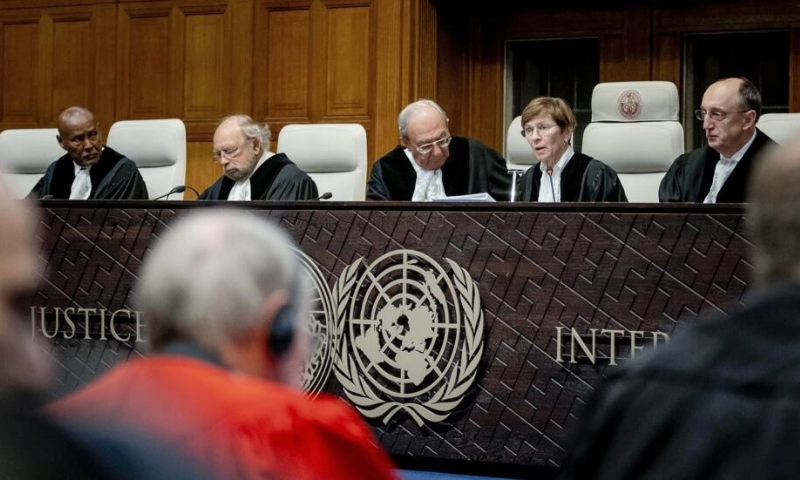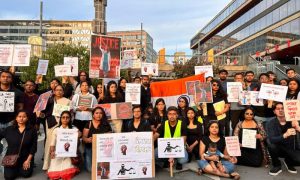THE HAGUE: Palestinian foreign minister Riyad Al-Maliki told the UN’s top court Monday his people were suffering “colonialism and apartheid” under the Israelis, urging the top court judges to order an immediate and unconditional end to the occupation.
Palestinian Foreign Minister Riyad Al-Maliki addressed the International Court of Justice (ICJ) on Monday, accusing Israel of subjecting the Palestinian people to “colonialism and apartheid.” Al-Maliki urged the judges to intervene and order an immediate and unconditional end to the Israeli occupation, asserting that justice delayed is justice denied for the Palestinian people.
The hearings, taking place at the Peace Palace in The Hague, focus on the legal implications of Israel’s occupation since 1967, with an unprecedented 52 countries expected to provide evidence, including the United States and Russia.
Al-Maliki’s impassioned plea comes amidst mounting international legal pressure on Israel, particularly concerning the recent conflict in Gaza. He condemned the ongoing Israeli violence in Gaza as a result of decades of impunity and inaction, stressing the imperative to end Israel’s impunity on moral, political, and legal grounds.
ICJ Examines Israel’s Violations of Palestinians’ Rights
The ICJ is deliberating upon two key questions raised by the UN General Assembly. Firstly, it examines the legal consequences of Israel’s violations of the Palestinian people’s right to self-determination, including the prolonged occupation, settlement expansion, and annexation of Palestinian territory. Secondly, it considers the impact of Israel’s discriminatory legislation and measures on the legal status of the occupation and its repercussions for the UN and other countries.
While Israel has chosen not to participate in the hearings, dozens of pro-Palestinian protesters gathered outside the court, expressing hopes for justice and the liberation of the Palestinian people.
The ICJ’s ruling on this matter, expected by the end of the year, will carry significant moral and legal weight, potentially shaping future international discourse and actions regarding the Israeli-Palestinian conflict. Despite the non-binding nature of advisory opinions, they often influence policy decisions and can contribute to the development of international law.






















